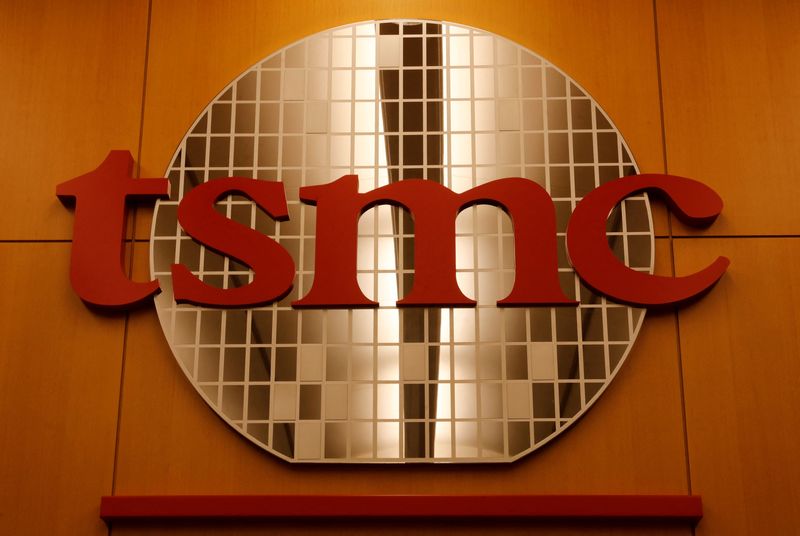By Ben Blanchard and Sarah Wu
TAIPEI (Reuters) - Taiwanese chipmaker TSMC cut its annual investment budget by at least 10% for 2022 and struck a more cautious note than usual on upcoming demand, flagging challenges from rising inflationary costs and predicting a chip downturn next year.
Speaking on the latest set of U.S. export controls aimed at slowing China's progress in advanced chip manufacturing, TSMC CEO C.C. Wei said on Thursday that it had obtained a one-year authorisation that covered its factory in Nanjing, China.
The new rules require companies looking to supply Chinese chipmakers with advanced gear to obtain a licence from the U.S. Department of Commerce, though Washington is expected to spare some foreign companies operating in China.
"Based on our initial reading and feedback from customers the new regulations sets the control threshold at a very high-end specification, primarily used for AI or supercomputing applications. Therefore our initial assessment is the impact to TSMC is limited and manageable," Wei said.
Taiwan Semiconductor Manufacturing Co Ltd (TSMC), the world's largest contract chipmaker, makes most of its chips in Taiwan.
After posting an 80% surge in third-quarter profit, the strongest growth in two years, TSMC said it was being more conservative in planning investments for 2023.
"We expect probably in 2023 the semiconductor industry will likely decline, but TSMC also is not immune," Wei told a media call.
TSMC's dominance in making some of the world's most advanced chips for high-end customers such as Apple Inc (NASDAQ:AAPL) and Qualcomm (NASDAQ:QCOM) Inc had shielded it from the downturn flagged by chipmakers including AMD and Micron Technology Inc (NASDAQ:MU).
The Taiwanese company's commentary on Thursday, though, was more in line with industry concerns about decades-high inflation, rising interest rates and COVID-19 lockdowns in China that have squeezed the consumer electronics market.
TOOL DELAYS
TSMC, Asia's most valuable listed firm, cut its capital expenditure (capex) for 2022 to around $36 billion. In July, the company said it would skim the lower end of its previous capex guidance of $40 billion to $44 billion this year, with some expenses pushed to next year because of a delay in the delivery of some chip-making equipment.
"About half of the change is due to capacity optimisation based on the current medium-term outlook and the other half is due to continued tool delivery challenges," Chief Financial Officer Wendell Huang told a media call.
For the fourth-quarter, TSMC forecast a 29% rise in revenue to between $19.9 billion and $20.7 billion, compared with $15.74 billion a year earlier.
The company said its data centre and auto businesses remained steady for now, and that its business overall will be more resilient than others.
"We say 2023 is still a growth year for TSMC, and the overall industry probably will decline," said Wei.
Only in July, TSMC said it had seen little impact from the current down cycle in the sector and long-term demand for its chips was "firmly in place" thanks to businesses shopping for high-performance computing chips used in 5G networks and data centres, as well as an increased use of chips in gadgets and vehicles.
Net profit for the third quarter ended September rose to T$280.9 billion ($8.81 billion), compared with the T$265.64 billion average of 21 analyst estimates compiled by Refinitiv.
Revenue for the quarter climbed 36% to $20.23 billion, versus TSMC's prior estimated range of $19.8 billion to $20.6 billion. China accounted for just 8% of revenue in the third quarter, down from 13% in the second.

Shares in TSMC have fallen almost 36% so far this year, giving it a market value of $323.7 billion. The stock fell 0.6% on Thursday, compared with a 2.1% fall for the benchmark index.
($1 = 31.8870 Taiwan dollars)